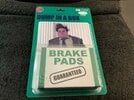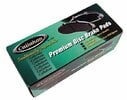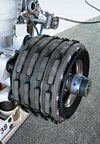Car and Driver test personnel didn’t have your problem (whether with the car or otherwise).My problem was stopping it from 100mph.
In repeated tests in stops from ***100*** (not 70) mph the Tesla plaid stock brakes stopped shorter than the BMW M5 CS. But this was already explained to you above but somehow you missed it. Perhaps because it didn’t confirm your bias.
Last edited:





